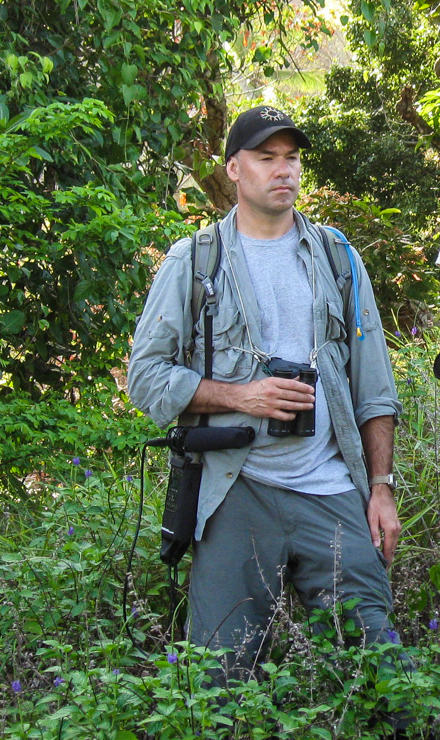You are here
Dr. Jack Dumbacher

About Dr. Jack Dumbacher
(secondary source)
- Type of Scientist: Ornithologist and Mammalogist (studies birds and mammals)
- Specialty: Birds
Dr. Dumbacher is always searching for answers to scientific questions. His search leads him on some wild adventures around the world, as he travels to study birds and other animals. Can you imagine making a lucky scientific discovery like finding out that a bird has poisonous feathers? Dr. Dumbacher did just that! He also manages a massive collection of birds at the California Academy of Sciences. By studying the birds in the collection and the ones he finds in the wild, Dr. Dumbacher hopes to learn more about how birds and other animals live.
Dr. Jack Dumbacher Interview
(primary source)
EdTechLens: What lessons have you learned in the field?
Dr. Jack Dumbacher: Well, being in the field gives us a chance to learn general natural history. The lab can teach us technical things like what chemicals are involved, how many, how much, etc., but in the field we can learn how the birds might use them, where the birds might get them, etc. And our guides have taught us a lot, as well. For example, it was local knowledge that taught us that another bird, the Blue-capped Ifrita, was also poisonous. And it was a friend from Herowana Village who discovered the source of the chemicals – which turns out to be a tiny highly toxic beetle in the family Melyridae, which the Pitohuis eat.
- EdTechLens: What role does technology play in your work?
Dr. Jack Dumbacher: Most of the studies we are now doing would be impossible without a lot of very technical equipment. For the toxic bird work, there were multiple mass-spec machines (which basically take separated chemicals and bombard them with ionizing radiation and measure the mass of the fragments) that made it possible to identify and characterize the compounds present. For the genetic work, modern day DNA sequencers make it possible to sequence many genes from many individuals quickly. And of course, computers make it possible to do complex work quickly and to share our results with the world almost instantaneously.
